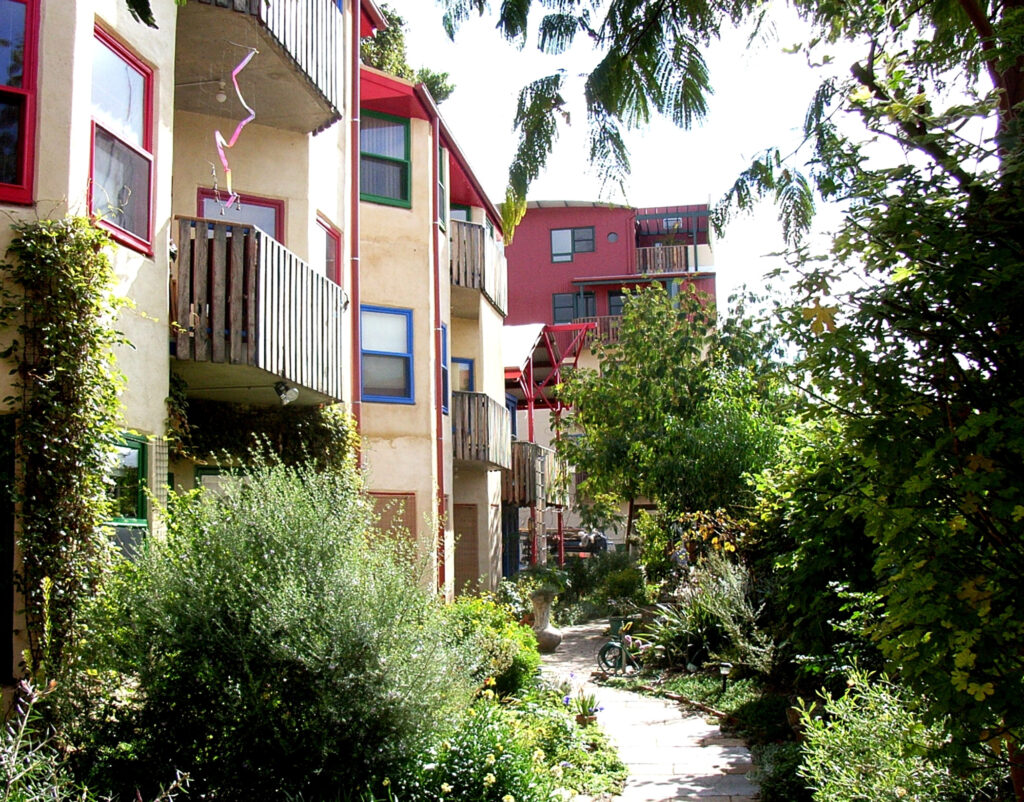- Vision
- Objectives
- History
- Awards
- Our Team
- Organisations we like
- Become a Member of Urban Ecology Australia
- Contact us
Urban Ecology Australia exists to demonstrate and promote a more sustainable approach to the way we live.
In 2008, for the first time, more people lived in cities than in rural areas. And so, if we are are to address major issues such as climate change, loss of biodiversity, resource scarcity and social equity, we need to focus on the urban form and look for ways in which we can improve it.
‘Ecocities’ can provide answers to many of these challenges and at Urban Ecology Australia we promote ‘Ecocities’ as a model for vastly improved urban design and planning.
Incorporated in December 1991, UEA is a United Nations accredited, non-profit, non-government, educational association, based in Adelaide, South Australia.
Urban Ecology’s flagship ‘Ecocity’ development, Christie Walk, provides visitors with a tangible example of what is possible when good urban design is applied to the challenge of housing people in medium density near the city centre.

Urban Ecology provides site tours of Christie Walk to members of the public, school groups, urban planners, decision makers and developers. The goals is to demonstrate how we can transform our cities into thriving, dynamic and self-sustaining places.
Membership of Urban Ecology is open to anyone.
Founders
Urban Ecology Australia was co-founded by:
Activities
- Regular tours of Christie Walk.
- Advocating attitude and policy change at all levels of government and industry.
- Supporting campaigns for renewable energy, bioregional planning, traffic free environments, and ecological development generally.
- Drawing on 20 years’ lived experience at Christie Walk to advise local councils and citizen groups on practical and social aspects of ecological housing projects.
Objectives
The goals of Urban Ecology Australia are set out in the Rules of the Association:
- To educate, inform and facilitate the exchange of information about
the evolution of ecologically integrated human settlement through conferences,
lectures, published papers, newsletters, participation in expositions
and fairs, maintaining a library, and through other appropriate means; - To sponsor, undertake and encourage research to be carried out in
relation to the evolution of ecologically integrated human settlement. - To provide an independent, community-based focus for co-ordinating
and advocating action to transform existing human settlements in the
direction of ecological integration, health, and social vitality and
equity; - To participate in building new ecologically integrated, healthy, socially
vital and equitable new human settlements.

